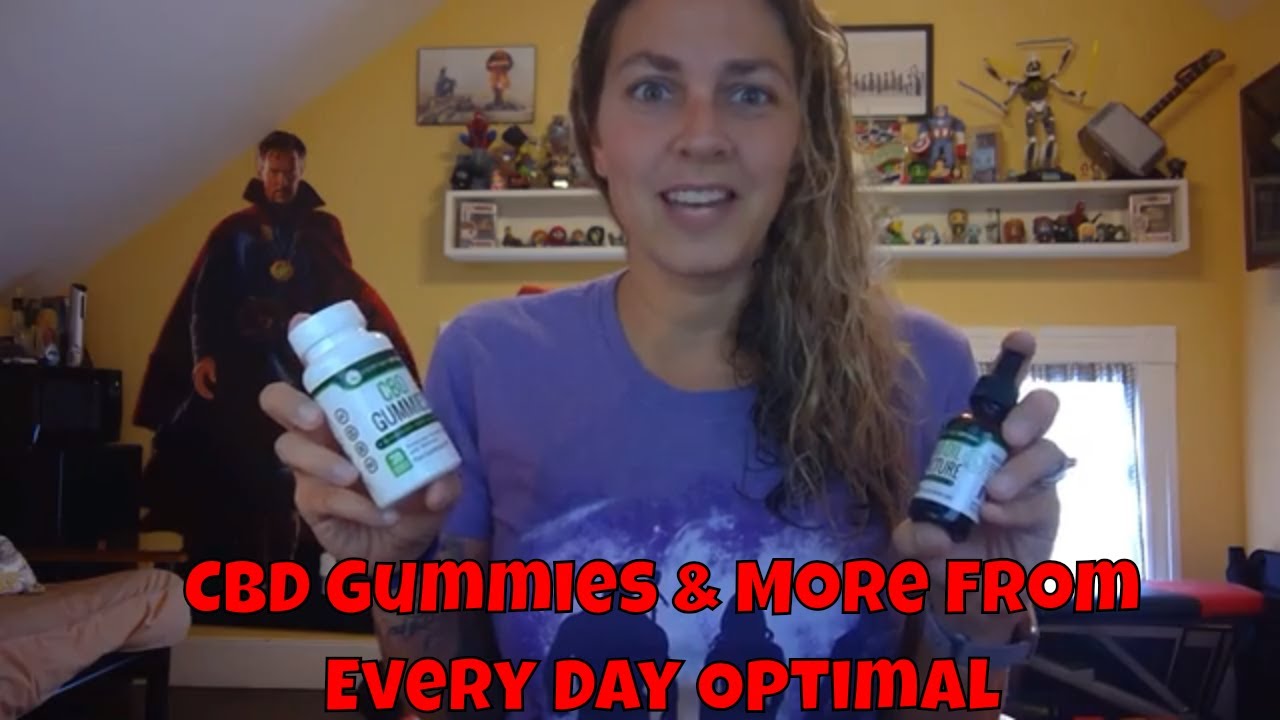CBD Ads on Facebook: 3 Key Rules for Compliance in 2025
The Rise of CBD Advertising on Social Media Platforms
The landscape of advertising on social media has evolved tremendously in recent years, especially with the rise of alternative products like CBD (cannabidiol). CBD has gained immense popularity due to its purported health benefits, including relief from anxiety and pain management, leading to an increasing number of businesses seeking to promote their CBD products on various platforms. However, navigating the intricate rules and regulations surrounding CBD advertising can be a daunting task, particularly on major social media platforms like Facebook. As we approach 2025, compliance with advertising regulations is more crucial than ever for CBD brands aiming to utilize Facebook effectively as part of their marketing strategy.

Facebook, with its substantial user base and advanced targeting capabilities, presents a lucrative opportunity for CBD brands to reach potential consumers. However, the social media giant has stringent policies regarding the advertisement of controlled substances, which includes CBD products derived from hemp, although these products are federally legal in many regions. This article explores the key guidelines CBD advertisers must follow to ensure compliance when promoting their products on Facebook in 2025. Understanding these key rules can help prevent advertising bans, account suspensions, and potential legal repercussions, ultimately safeguarding both the brand and its reputation.
The complexity surrounding CBD’s legal status adds an additional layer of difficulty for advertisers. While CBD derived from hemp is federally legal in the United States, the legal framework can vary significantly by state and even by municipality. Coupled with Facebook’s own set of policies against the advertisement of certain products, CBD brands must navigate a fine line to create effective ad campaigns without falling foul of regulations. In light of these complexities, we will delve into three key rules that can help CBD marketers remain compliant while leveraging Facebook’s advertising capabilities in the coming years.

Understanding Facebook’s Advertising Policies
To effectively promote CBD products on Facebook, brands must first have a deep understanding of Facebook’s advertising policies. Facebook has specific rules that govern the promotion of products related to drugs and controlled substances, and while CBD can be marketed under certain conditions, advertisers must ensure they adhere closely to these stipulations. The guidelines state that advertisements must not promote the sale or use of illegal, prescription, or recreational drugs. Therefore, CBD brands must meticulously craft their messaging to avoid triggering these restrictions.
Additionally, the platform prohibits misleading claims and ensures that advertisements comply with local laws. This means CBD companies must be careful not to make health claims without sufficient scientific backing, as doing so may lead to advertisements being flagged or rejected. Brands should focus on educating their audience through their ads rather than making direct health-related assertions. This educational approach not only aligns with Facebook’s policies but also strengthens consumer trust and establishes the brand as a knowledgeable authority in the CBD space.
As Facebook continues to adapt its policies in response to evolving regulations regarding cannabis products, staying informed about these changes is imperative for marketers. Brands must regularly review Facebook’s advertising policies and remain agile in adjusting their advertising strategies. By proactively maintaining compliance, CBD companies can minimize disruptions to their campaigns and foster a sustainable advertising presence on the platform.
Targeting the Right Audience: Age and Location Restrictions
Targeting the appropriate audience is a crucial component of any successful advertising campaign, especially for CBD brands utilizing Facebook. Given the sensitive nature of CBD products, legal age restrictions are in place, and marketers must ensure their advertisements target individuals of legal age in their respective regions. Generally, states have established age limits for the purchase and consumption of CBD products, usually set at 18 or 21 years old. Advertisers must utilize Facebook’s audience targeting tools to restrict their ads accordingly, ensuring compliance with these legal requirements.
Moreover, the geographic targeting of advertisements is equally crucial. CBD regulations differ from state to state, meaning a product legal in one state may not have the same legal standing in another. Consequently, brands must tailor their advertising campaigns to align with the specific regulations of each location they target. By refining audience parameters to focus only on areas where the products are legally sellable, brands can minimize the risk of penalties and ensure they are not promoting illegal activity through their ads.
Furthermore, not only does effective audience targeting meet compliance requirements, it also enhances the overall effectiveness of the ad spend. By reaching the right consumers who are legally eligible to purchase CBD products, brands can improve engagement and conversion rates. A focused audience approach enables brands to deliver more relevant content, which will resonate better with potential customers and foster brand loyalty in the long term.
Creating Compliant Ad Content: Imagery and Language
The content of the advertisements themselves must be crafted with compliance in mind. This includes the imagery and language used throughout the advertisements. Facebook’s policies are particularly sensitive about the representation of products, especially those related to CBD. Images that directly showcase the CBD products, such as oils or edibles, must be used cautiously, as they may conflict with Facebook’s guidelines against the promotion of drugs. Instead, brands should focus on lifestyle imagery that promotes overall wellness while subtly hinting at the incorporation of CBD in a healthy lifestyle.
Moreover, the language within the advertisements must be carefully selected to avoid any misleading or non-compliant statements. Language that suggests health benefits without empirical evidence can lead to ad rejections and reputational damage. Brands need to balance the need to promote their products while sticking to educational or informational messaging. Highlighting aspects of the brand, sourcing practices, or compliance with regulations can allow marketers to create a compelling narrative without crossing the line into prohibited claim territory.
Finally, incorporating user-generated content and testimonials can be a powerful way to humanize the brand while mitigating compliance risks. However, it’s essential to ensure that these testimonials do not make unverified health claims, as this could lead to compliance problems. Engaging past customers to share their experiences can reinforce the brand’s credibility while remaining within the bounds of Facebook’s advertising policies, as long as it is done thoughtfully and responsibly.
https://youtube.com/watch?v=3FQdWzKEkw0
Staying Updated with Regulatory Changes
The regulatory landscape surrounding CBD advertising is continually evolving. Laws and guidelines differ not only between countries but also between states and even cities within the United States. For CBD brands looking to leverage Facebook for advertising, staying updated on these changes is essential for ongoing compliance. This necessitates a proactive approach to monitoring regulatory news, updates, and adaptations that might impact advertising frameworks and consumer laws.
CBD brands should consider having a dedicated legal or compliance team or seek guidance from external legal counsel specializing in cannabis law. This team can help brands navigate regulatory shifts and analyze how new laws might affect their advertising strategies on platforms like Facebook. Furthermore, participation in industry associations or events can provide insights and networking opportunities to stay connected with the latest trends and regulatory developments.
Regularly auditing advertisements against existing laws and Facebook’s policies is another method to ensure ongoing compliance. By conducting routine checks and adapting to changes, brands can mitigate risks associated with non-compliance. Maintaining lines of continuous communication with advertising teams can also enhance preparedness for any future developments. By establishing a culture of compliance within the organization, CBD brands can build a solid foundation for long-term advertising success on Facebook.
Preparing for the Future: Sustainability and Consumer Trust
As the CBD market continues to expand and diversify, consumer trust and sustainability will play increasingly vital roles in the success of CBD advertising on platforms like Facebook. Consumers today are more informed and concerned about the brands they purchase from, often seeking transparency regarding product sourcing, production practices, and corporate responsibility. As CBD businesses navigate the complexities of advertising, they must also focus on building and maintaining consumer trust through ethical practices and quality assurance.
Being transparent about product ingredients and sourcing can help strengthen consumer confidence. CBD brands can use their Facebook platforms to share information about their cultivation processes, laboratory testing results, and third-party validations to assure consumers about product quality and authenticity. Engaging consumers in conversations around sustainability efforts or community involvement can also foster a deeper connection with the brand, promoting not only product sales but also an emotional bond with the audience.
Moreover, as more states and countries consider loosening restrictions on cannabis-related items, the potential for broader CBD advertising standards continues to grow. Brands that adopt proactive, transparent marketing approaches today will pave the way for future growth as the market matures. By being seen as leaders in compliance and consumer engagement now, CBD brands can position themselves favorably to capitalize on new opportunities when regulations evolve further.
Summary and Frequently Asked Questions
In summary, advertising CBD products on Facebook in 2025 requires a thorough understanding of Facebook’s advertising policies, astute audience targeting, compliant ad content creation, and staying updated with regulatory changes. By adhering to these three key compliance rules, CBD brands can effectively leverage the platform’s vast reach while minimizing the risks associated with advertising their products. The importance of transparency, consumer trust, and adaptive strategies cannot be overstated, as these elements form the foundation of successful marketing in the evolving CBD landscape.
FAQs regarding CBD advertising on Facebook often revolve around the legal implications, targeting restrictions, and what constitutes compliant content. For instance, many wonder, “Can I advertise CBD products on Facebook?” The answer is yes, but it must be approached with caution, ensuring that all advertising content aligns with both Facebook’s guidelines and local laws regarding CBD sales. Others commonly ask about the legality of making health claims in ads. In general, making unsupported health claims is prohibited and can lead to ad rejection.
It’s also crucial to consider variations in state laws—advertisers in Illinois may have different rules than those in California, which highlights the importance of localized advertising strategies. CBD brands should proactively research their target markets to gain clarity on legal requirements. This thoroughness will help ensure compliance with advertising rules and foster consumer confidence in their products.